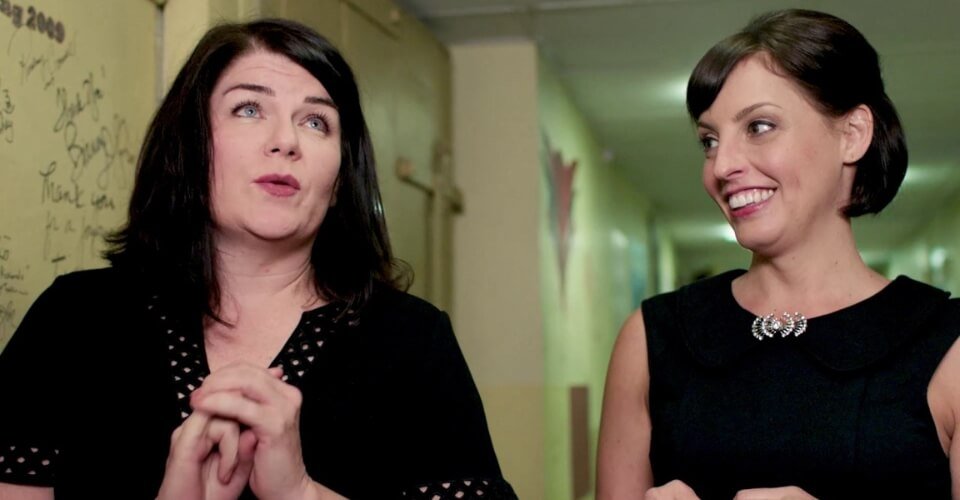The podcast “My Favorite Murder” has undeniably ridden the true crime wave to great success since its inception in 2016, with hosts Karen Kilgariff and Georgia Hardstark amassing substantial wealth in the process.
Their recent $100 million deal with Amazon further solidifies their position in the podcasting realm, which also is a testament to their growing popularity. However, it’s worth noting that the true crime genre itself has come under scrutiny for various reasons!
The controversy surrounding the popular podcast “My Favorite Murder” arose when fans pointed out that the podcast was downright unethical and based on insensitive themes. Right from the title of the podcast to its narrative and the hosts’ take on murders and violence, most things about the podcast seemed to have offended even the fans who love the show, creating controversy.
My Favorite Murder Controversy Explained
“My Favorite Murder,” a popular true crime podcast hosted by Karen Kilgariff and Georgia Hardstark, has faced criticism for its approach to the true crime genre. Viewers and critics alike have raised concerns about the insensitivity and ethical implications of certain aspects of the podcast.
One point of contention has been the podcast’s sign-off catchphrase, “Stay sexy and don’t get murdered.” Many have found this phrase to be both absurd and insensitive, as it appears to trivialize the serious and tragic nature of the subject matter. The very idea of having a “favorite” violent act, as implied by the podcast’s title, has also sparked controversy.
Notably, true crime’s popularity has sparked controversy due to concerns about empathy and sensitivity, particularly among some authors and followers who refer to themselves as “fans” of true crime.
The notion of being a fan of cases that involve real-life victims and gruesome tragedies also raises ethical questions. Moreover, the genre has sometimes been criticized for sensationalizing criminals and fostering a culture of internet sleuthing that can interfere with ongoing cases.
Additionally, listeners have expressed discomfort with the podcast’s approach, suggesting that it occasionally veers into victim-blaming territory. Some argue that the show places undue responsibility on victims for the violence they experienced.
These criticisms shed light on the ongoing debate surrounding the ethical boundaries of true crime content, particularly when it involves real-life tragedies and victims.
Some controversy surrounded one of the hosts of the podcast too, Karen Kilgariff, who herself is notioned to have been addicted to drugs, which further gave the podcast a negative angle.
What Was Karen Kilgariff Addicted To?
Karen Kilgariff, one of the hosts of My Favorite Murder, has a history of overcoming addiction and substance abuse. Kilgariff has been candid about her past struggles with amphetamines and diet pills, and she has shared her journey to sobriety.
In an interview on Marc Maron’s WTF podcast, Kilgariff revealed that her decision to quit drugs and alcohol came after experiencing seizures, which led her to fear that her substance abuse might have been a contributing factor. She acknowledged that addiction had been a way for her to cope with life’s challenges.
Kilgariff’s battle with addiction continued until she reached the age of 27, at which point she faced a health crisis when she began having seizures and received a diagnosis of epilepsy. This health scare served as a pivotal moment in her life, prompting her to commit to a sober lifestyle.
My Favorite Murder, therefore, adds an intriguing layer to this discussion as it bills itself as a “true crime comedy.” This juxtaposition of humor and serious subject matter can be seen as problematic by some, given the inherently sensitive nature of true crime cases. While the podcast’s success cannot be denied, it also highlights the ongoing debate surrounding the portrayal and consumption of true crime content.
Let us know what your thoughts on the podcast are. Do you think people should take such a podcast which is based on the very theme of violence, with a grain of salt? Or do you really think the makers should focus on making the show entertaining as well as less insensitive? Write to us below!

